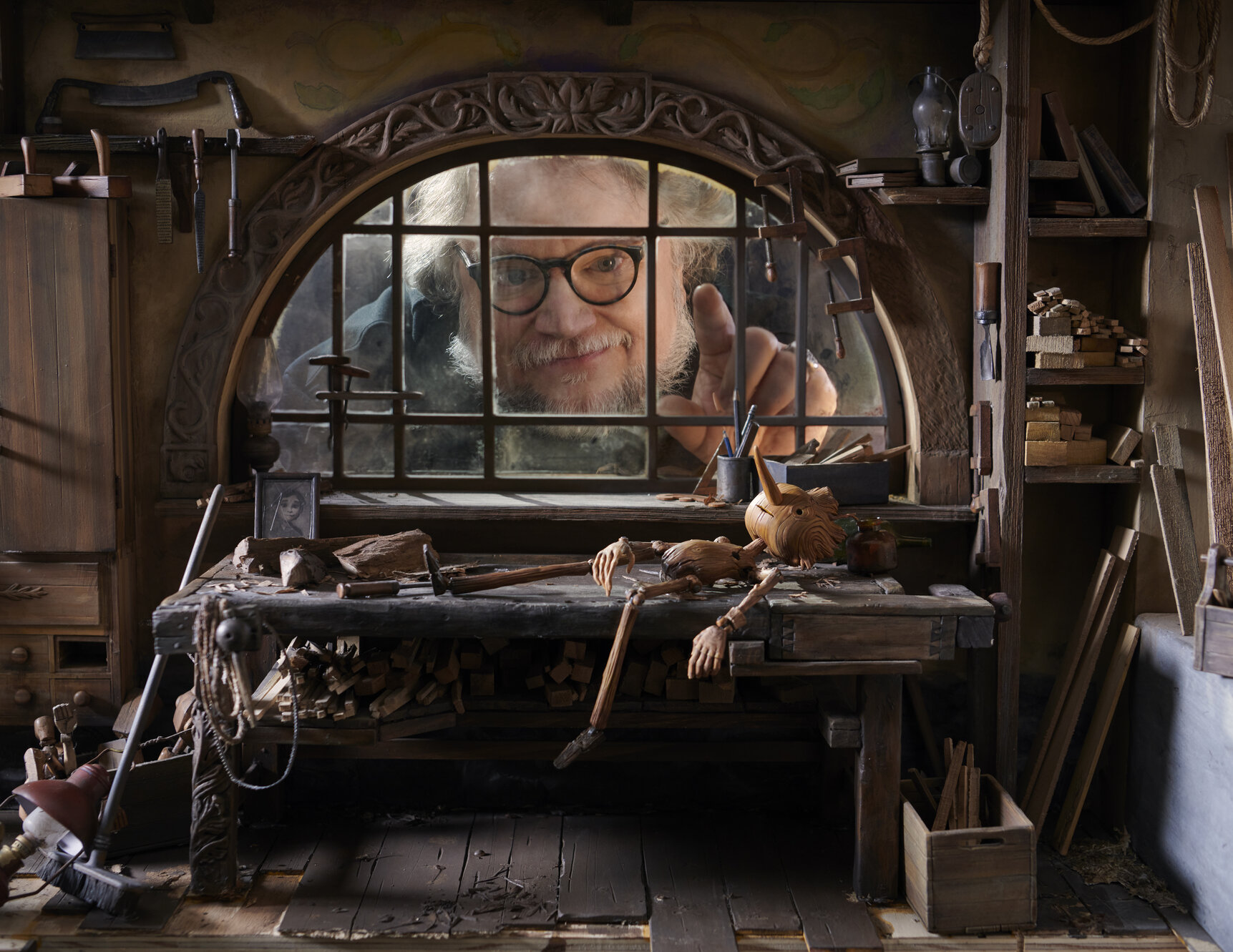In some respects, Guillermo del Toro’s Pinocchio — a spellbinding visual tour-de-force that reimagines the classic children’s story as a stop-motion musical adventure — is a return to the director’s roots.
The movie, which debuts on Netflix on December 9, can trace its origin all the way back to del Toro’s childhood in Guadalajara, Mexico. Before he was an imaginative film director, he was a young boy armed with a Super 8 camera that he used to shoot his toys for what would become amateur stop-motion films. Just a few years later, he was already teaching claymation classes as a teenager — and, even then, kicking around the basis for the idea that would become his Pinocchio decades later.
Guillermo del Toro’s Pinocchio
With just hours to go before the film debuts on the streaming giant, the early reviews from critics have already been downright rapturous. del Toro’s Pinocchio already has a near-perfect 97% critics’ score on Rotten Tomatoes, for example, thanks to praise like this from Vanity Fair’s critic:
Pinocchio is “an exercise in exploring the seams between life’s pleasures and its terrible pains, a film that turns toward our grim era and wrestles some measure of hope and kindness out of it.”
The movie finds del Toro teaming up with award-winning stop-motion legend Mark Gustafson to refresh the timeless tale from Italian writer Carlo Collodi about the wooden boy who dreams of becoming human. The voice cast includes Gregory Mann as Pinocchio; Ewan McGregor as Cricket; David Bradley as Geppetto; Tilda Swinton as Death; and Finn Wolfhard as Candlewick.
In the hands of del Toro, meanwhile, the story becomes something even more transcendent than audiences might remember from the original Disney film.
‘We find ourselves in a world that has become far more complicated’
“I used to teach stop motion and one of the guys in the class was infinitely better than I was at animating,” del Toro says in an interview with the streaming giant that’s included with the movie’s press material. “So I partnered with him and said, ‘Why don’t you animate and I’ll come up with the ideas?’
“It was around that time I first thought about doing Pinocchio in stop motion, but it would be more like Frankenstein — about a character thrown into the world as a blank slate to find out who he is, what he’s doing in this world, and why he exists.”

This movie, del Toro’s 12th feature film, marries the childlike state of wonder inherent in the visuals with some of the more mature subtext of Collodi’s original story.
“I think that we find ourselves in a world that has become far more complicated in the last few decades and kids now have questions and want to know about things that are really complex,” del Toro says. “Their emotions are very complex.
“There’s a sense that the world needs dialogue about what is true and what is a lie, what are the ties that bind families, and what it is to be human and to be alive. These are important themes, emotions, and ideas that percolate in the head of every kid right now. And I think this fable is good-natured, brisk, funny, and moving, but ultimately also allows for that type of dialogue.”








